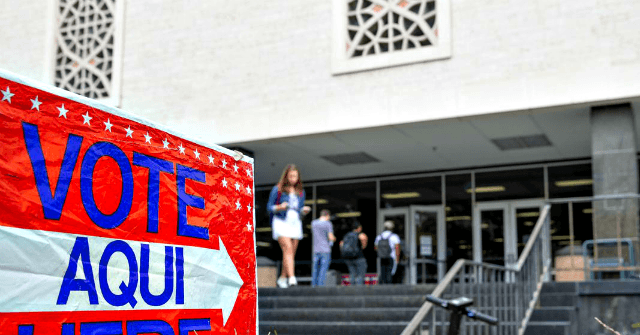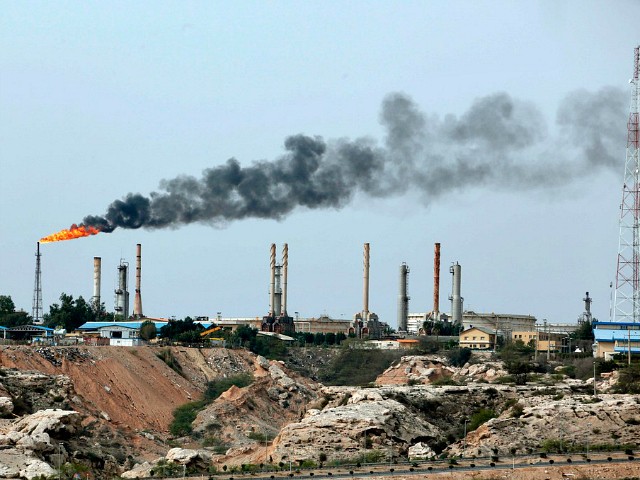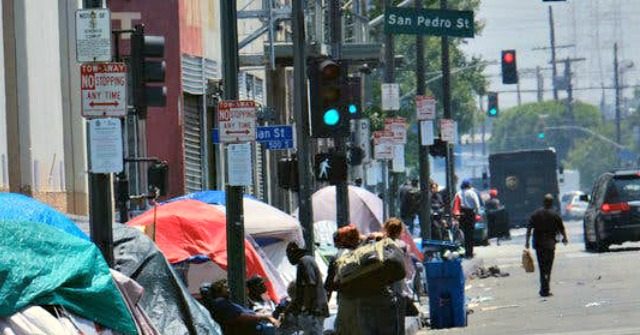
Sen. Marsha Blackburn (R-TN) told Breitbart News Friday that, as America approaches Independence Day, she is calling for English, as the language of freedom, to be America’s official language.
On Thursday, Sen. Blackburn became the latest sponsor for S. 678, the English Language Unity Act, written by Sen. Jim Inhofe (R-OK). The bill would establish English as the national language and would establish a uniform language requirement for the citizen naturalization process.
Blackburn’s backing of the English Language Unity Act arises as former Rep. Beto O’ Rourke (D-TX), former Obama official Julian Castro, and Sen. Cory Booker (D-NJ) spoke Spanish during the 2020 Democrat national debate on Wednesday night. A poll found that a majority of independent swing voters found that speaking Spanish during the debate was “pandering.”
Inhofe’s legislation garnered seven Senate cosponsors in the last congressional term, and with Blackburn’s backing, the bill has three cosponsors this term.
Sen. Blackburn said that as Americans prepare to celebrate America’s Independence Day, English should become the national language and that proficiency in English should become an integral part of the country’s naturalization process.
“As we near Independence Day, it’s important to recognize that English represents the language of freedom and should be our country’s official language. After all, our Founding Fathers wrote the Declaration of Independence and our Constitution in English,” Blackburn told Breitbart News. “Learning English is a rite of passage for all new American citizens. One part of that process should be learning and understanding these founding documents in the language it was written.”
Americans overwhelmingly favor legislation to make English the national language.
A 2018 Rasmussen poll found that 81 percent of Americans believe that English should become the official language of the United States, while only 12 percent said disagreed that English should be the national language, and six percent said they were not sure. Ninety-five percent of Republicans agreed that English should be the national language, and 75 percent of Democrats agreed that the country should adopt English as its language.
Fifty percent of Americans also said that election ballots and other official government documents should be printed in English, while 44 percent said they should also be written in other languages.
Congressman Steve King (R-IA) sponsored the House companion legislation to the bill, and the bill has 23 cosponsors, including Reps. Thomas Massie (R-KY), Paul Gosar (R-AZ), and Mo Brooks (R-AL).
ProEnglish, one of the nation’s leading advocates for the English language, contended that the legislation will save Americans billions of dollars in government-mandated translation and interpretation costs and will encourage cultural and linguistic assimilation by new immigrants to the country.
Inhofe and King’s legislation arises as a Pew Research study found that many illegal and legal immigrants lacked proficiency with the English language. The study found that only 34 percent of illegal immigrants said they were proficient in English, and only 57 percent of legal immigrants said that they were skilled with the English language.
A 2018 Center for Immigration Studies poll found that 67 million people in the United States do not speak English at home, nor do nearly half the residents speak English in America’s five largest cities.
Proficiency in English will serve as a centerpiece of President Donald Trump’s proposed immigration reforms.
President Trump said in May that “to promote integration, assimilation, and national unity, future immigrants will be required to learn English and to pass a civics exam prior to admission.”
Trump added, “Through these steps, we will deliver an immigration system that respects, and even strengthens, our culture, our traditions, and our values.”
via Breitbart News
Enjoy this article? Read the full version at the authors website: https://www.breitbart.com








